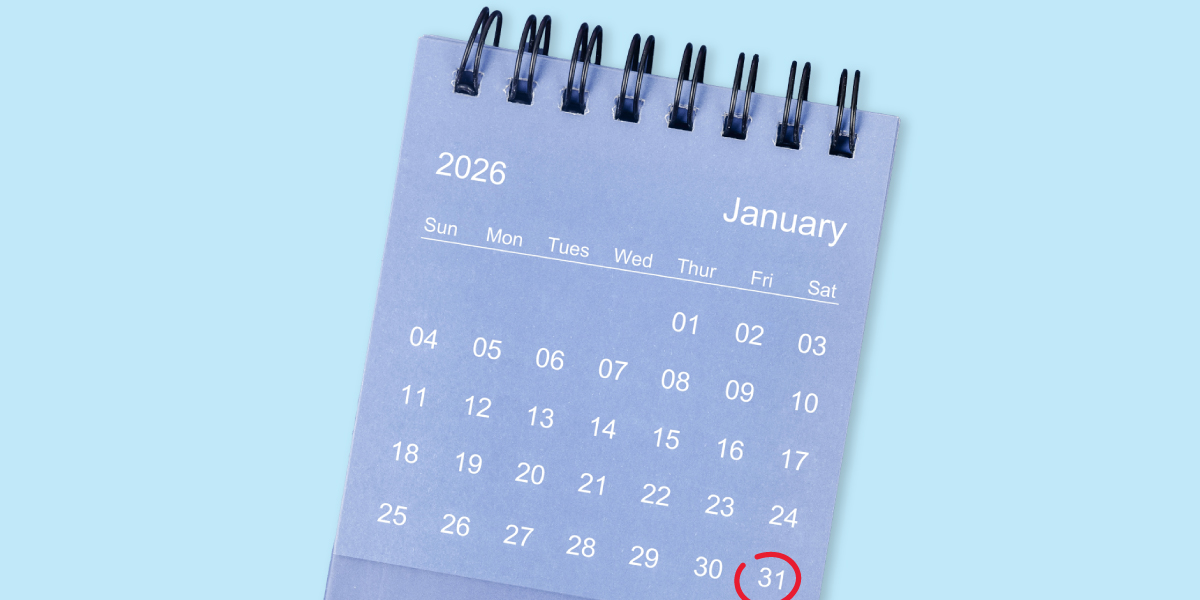
MEMBER EXCLUSIVE
Members can use GoSimpleTax to file to HMRC at a great price and avoid costly accountant fees.
Get started
In this article
New tax rates and allowances for 2025-26 come into force from today, so make sure you know if anything has changed.
If you have all of the information you need, you could file your 2024-25 tax return from this date.

Members can use GoSimpleTax to file to HMRC at a great price and avoid costly accountant fees.
Get startedSelf-employed workers who pay tax through payment on account will have to make their second payment for 2024-25 by midnight on 31 July.
The amount you pay is an estimate based on your earnings in 2023-24. If you still owe tax after this has been paid, a further 'balancing payment' may be due on 31 January 2026.
If you've never submitted a self-assessment tax return before, you must register by 5 October 2025 to submit a return for the 2024-25 tax year.
This will allow you to get your Unique Taxpayer Reference (UTR) number and activation code in time, which you need to file your first return.
This is the deadline for filing a paper tax return. However, if you receive a notice from HMRC that you must file a tax return after 31 July 2025, you'll need to send back the completed form within three months of the date issued on the notice.
If you miss the deadline for filing your paper tax return, don't be tempted to try and file it late. You'll still have time to complete an online tax return instead - as these aren't due until 31 January. But don't submit both.
If you file your tax return online and also have earnings taxed under PAYE, you can opt to have overdue tax collected via your tax code throughout the following year.
However, to be eligible your tax bill must be less than £3,000 and you must file your online return by this date. The advantage of this is that any tax payable would be paid over 12 months from April 2026, rather than a single lump sum by 31 January 2026.
This is the deadline for online tax returns for the 2024-25 tax year. HMRC must have received your tax return by midnight.
Usually, the only time this deadline may differ is if you received a notice to make an online tax return from HMRC after 31 October 2025, in which case you have three months from the date of issue to file.
The deadline to pay your tax bill is also 31 January, and if you're self-employed it's the day you'll have to make your first payment on account for the 2025-26 tax year, and a balancing payment if tax is still owed from your 2024-25 income.
If you're late paying your tax bill, you'll incur interest from HMRC. Late payment interest is set at the Bank of England base rate plus 2.5%.
It's important to be aware that filing your tax return late, or failing to pay the tax you owe on time, will probably mean you'll face extra penalty fees and interest charges.
We've outlined the kinds of charges you could face for missing the tax return deadline.
You could face a £100 fine for filing even just a day after the deadline.
After three months, you'll be fined £10 for each additional day (capped at 90 days), plus the £100 initial fine - up to a maximum of £1,000.
Either £300 or 5% of the tax due (whichever is higher), on top of the penalties above.
An additional £300 fine, or 5% of the tax due, plus the above penalties. In the most serious cases, you may be fined 100% of the tax due.
If you're late paying the tax you owe, you could face a host of additional fees. Find out more in our guide on late tax returns and penalties for mistakes.
If you've never submitted a tax return before, you'll need to register with HMRC. You can do this online.
Once you've done that, you can choose from two ways to submit your tax return - by filling out the paper tax return and posting it to HMRC, or doing it online on the HMRC website.
Doing an online tax return has numerous advantages, which you can read about in our online tax returns guide.
Alternatively, you can tackle your tax return with the tax calculator service from GoSimpleTax. It can help you to tot up your tax bill, get tips on where to save and submit your return directly to HMRC.
Use the jargon-free calculator provided by GoSimpleTax to complete and securely submit your tax return direct to HMRC.
Calculate your tax bill